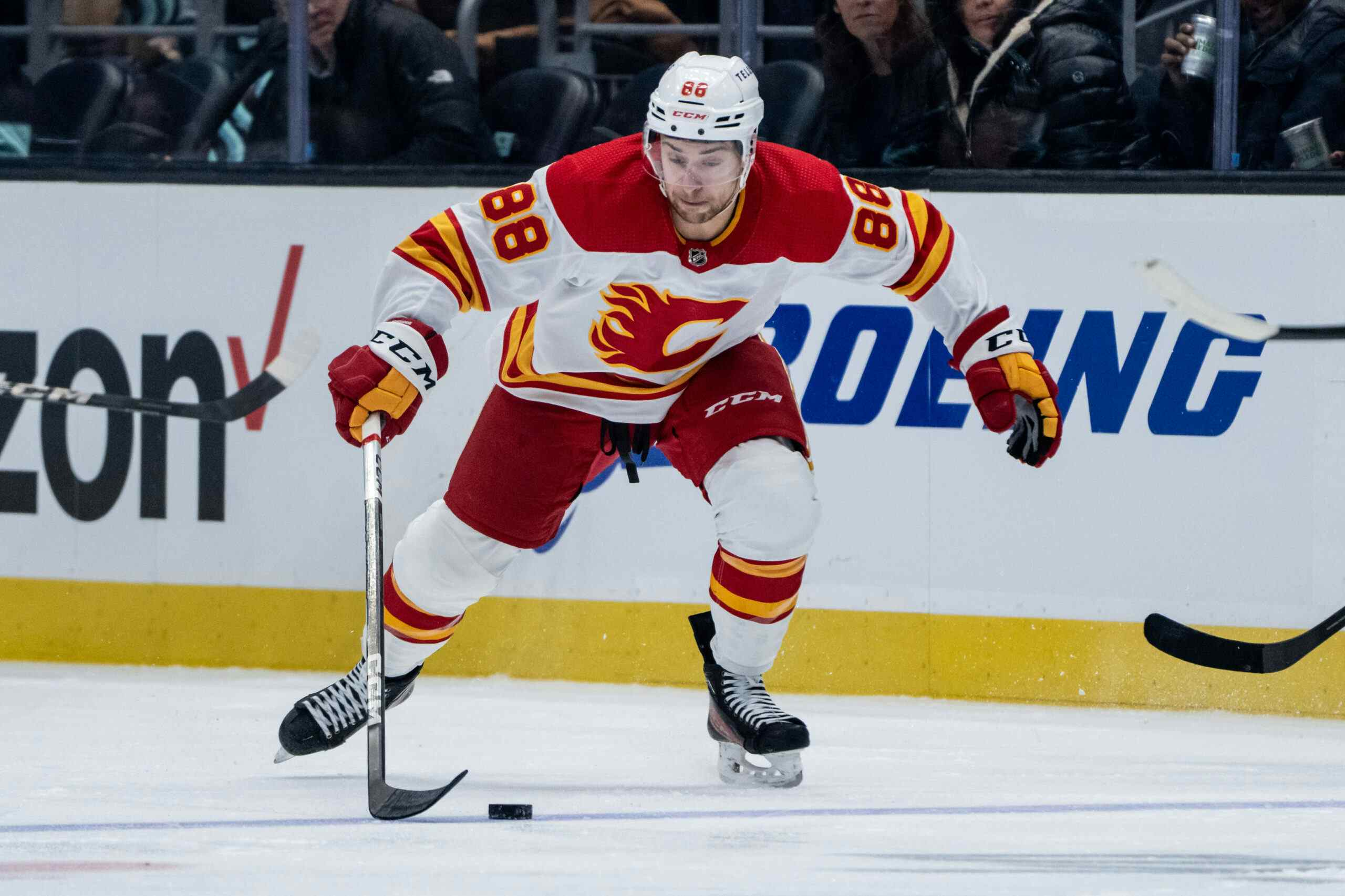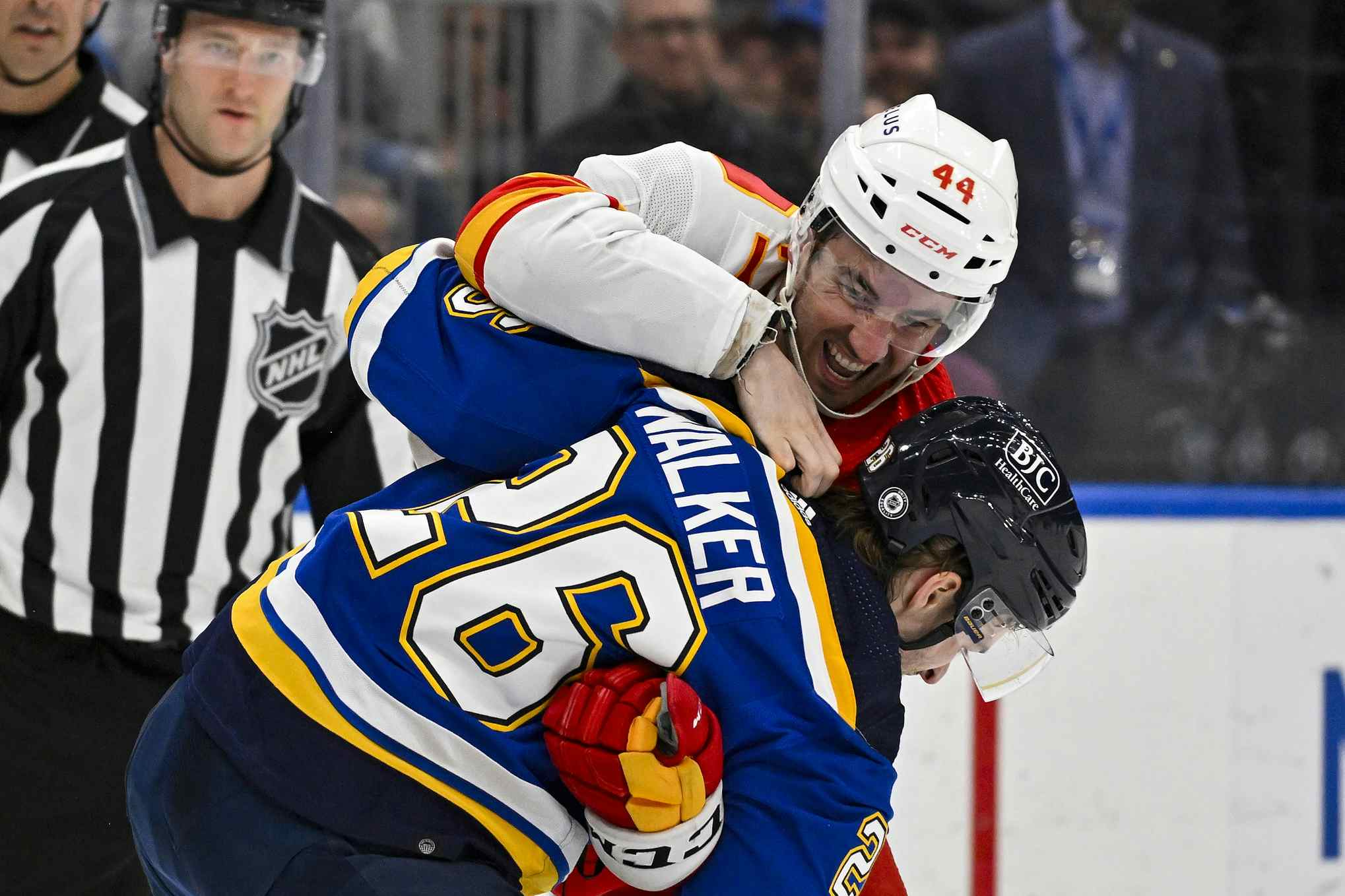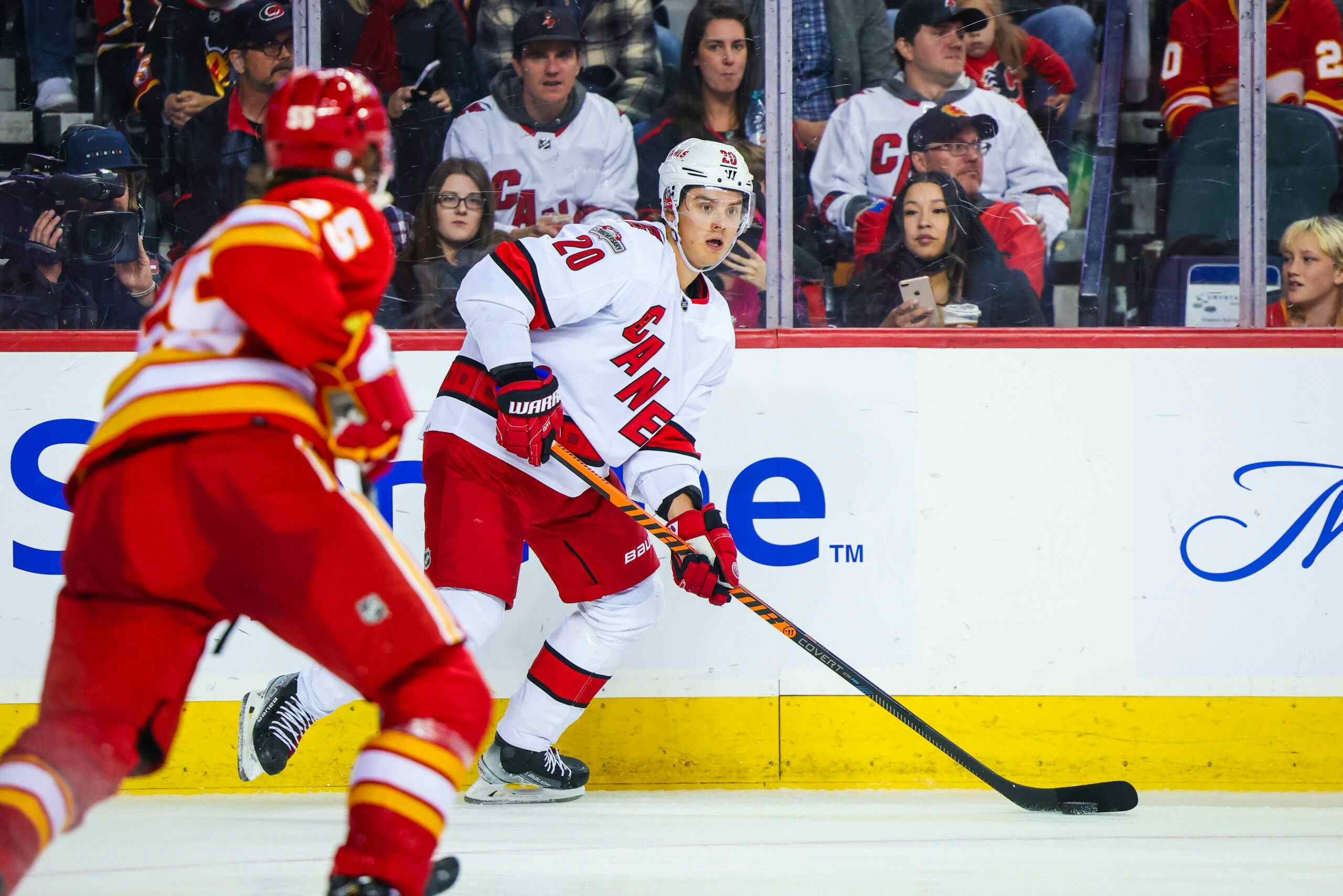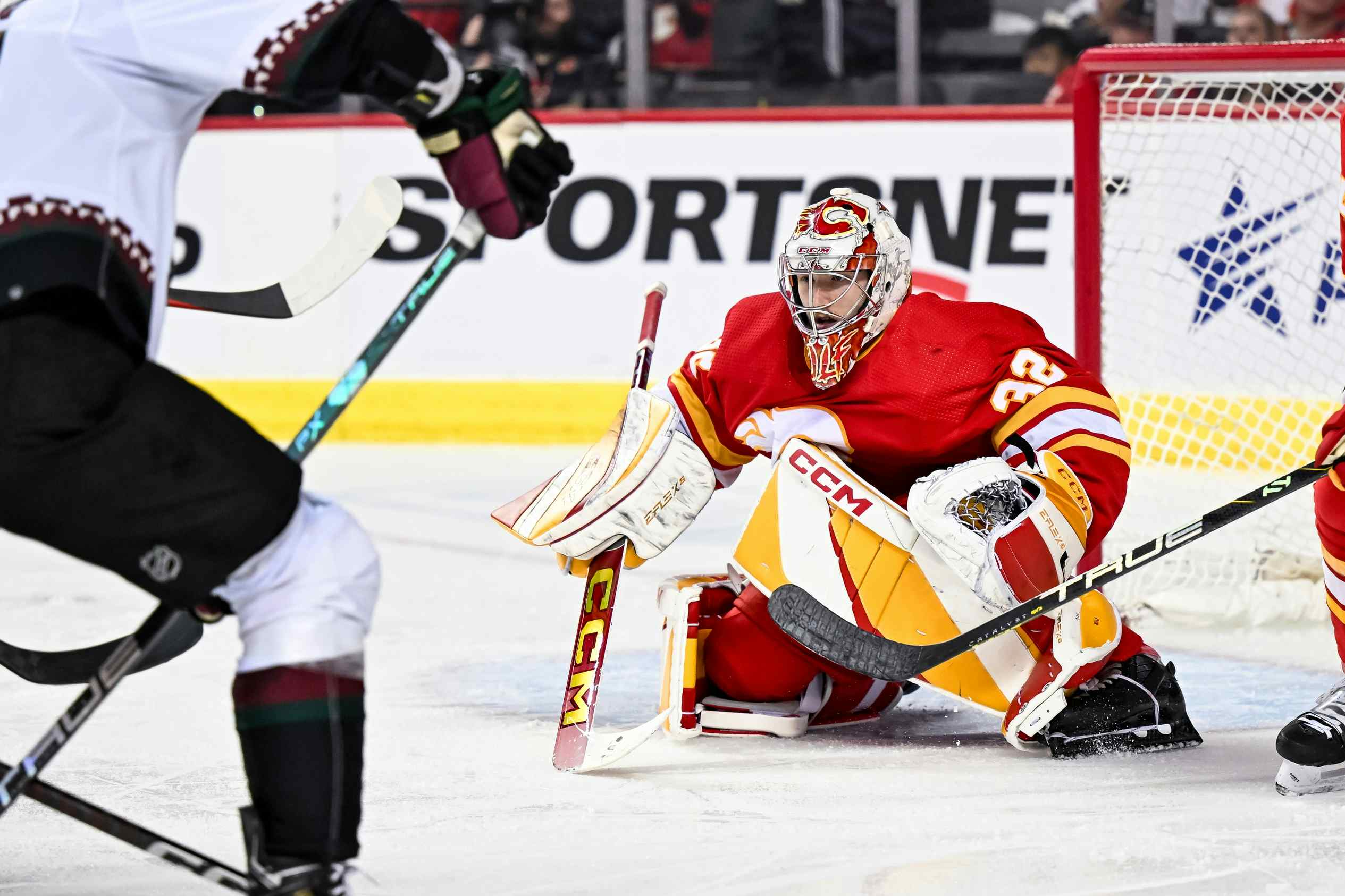Reasonable Expectations: Dennis Wideman
By Ryan Pike
9 years agoHeading into the summer following the 2011-12 season, the Calgary Flames were in a tight spot. Their core was aging and the team missed the playoffs by a mere 5 points. Opting not to tear it down, then-Flames GM Jay Feaster went on the offensive. Hoping to bolster the power-play, he made a bold move and traded a fifth round pick and the rights to pending minor-league UFA defenseman Jordan Henry to Washington for the rights to Dennis Wideman.
And then he signed Wideman to a big-money, long-term deal.
Shockingly, it hasn’t worked out all that well for the Calgary Flames. Or for the Capitals, who flipped that pick to Winnipeg (who turned it into NAHL player Tucker Poolman). Or for Jordan Henry, who ended up in Europe. I guess Wideman got his $5.25 million per year, so he’s probably reasonably pleased.
| Season | Corsi % | PDO | OZS% | Team |
| 2009-10 | 51.5% | 98.0 | 51.3% | Bruins |
| 2010-11 | 50.5% | 96.9 | 51.7% | FLA/WSH |
| 2011-12 | 49.4% | 99.7 | 49.0% | Capitals |
| 2012-13 | 48.1% | 97.2 | 45.5% | Flames |
| 2013-14 | 46.1% | 97.2 | 62.2% | Flames |
Wideman’s a strange case. His possession stats have gradually tumbled over the past five years. Fairly consistently, actually. He’s been protected and used primarily as a power-play specialist. He follows in a long line of Calgary Flames power-play specialists, notably Anton Babchuk.
Except he’s much much more expensive than Anton Babchuk. (Twice as much as Babchuk was at his earning peak.)
WIDEMAN’S 2013-14 NUMBERS
Wideman had a rough year in 2013-14. He was used either as a second or third pairing defender, primarily playing with Kris Russell (when Giordano was hurt) or Ladislav Smid (when he wasn’t). He also missed 36 games due to injury, and as such you can probably give him some lee-way because he got injured twice.
On the other hand, his defensive zone play has never been anything to write home about. Luckily, it seems that Bob Hartley is a person with eyes, because based on what he saw with those eyes, he smartly parked his power-play specialist in as many easy situations as possible.

It’s disappointing that his possession numbers are as bad as they are given how sheltered he’s been. But when compared to some of his teammates on the blueline, Wideman was pretty good on the power-play. He only earned four points on the PP all year (of his 21 overall), but he was reasonably productive given he missed 36 games – generating about a goal for his unit every 4 games or so. To put his power-play production in perspective:
| PP TOI | PP GF | TOI/GF | |
| Giordano | 220 | 26 | 8.46 |
| Russell | 201 | 23 | 8.74 |
| Wideman | 144 | 12 | 12.0 |
| Brodie | 144 | 11 | 13.1 |
| Butler | 28 | 1 | 28.0 |
2014-15 EXPECTATIONS
Over the past few seasons, Wideman’s production has ranged from 0.45 to 0.55 points per game. He’s not amazing five-on-five, but he’s not Shane O’Brien bad. He’s prone to defensive lapses, but is heavily shielded to compensate. He starts a decent amount of time in the offensive zone, but makes most of his hay on the power-play. He’s got a great shot but uses it infrequently. He’s a decent passer but tends to shoot more than he passes.
He’s 31 now and his production is bound to tail off eventually. If he gets 40 points this season, that would be right in the middle of the range he’s had for the past five seasons. I’m mildly concerned about his ability to stay healthy, though, and considering he may spend a lot of time with Ladislav Smid and/or Deryk Engelland as his defensive partners, they might not spend a lot of time in the offensive zone.
Wideman would be a decent fifth defender on a lot of teams. He’s functional if flawed defensively and is pretty good offensively, particularly on the power-play. Unfortunately, he makes a lot of money and is well over-priced for his particularly role. I don’t begrudge him for it, but most likely both sides will do their best to ride out his contract and make the most of his skill-set while he’s in Calgary.
That means sheltered even-strength minutes and a decent amount of power-play time. At this point, Wideman is what he is.
Recent articles from Ryan Pike





